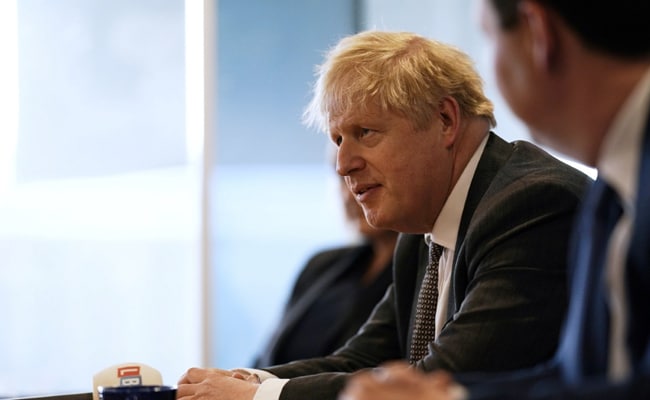UK Publishes Plans To Decarbonise Transport By Mid-Century

UK PM Boris Johnson last year announced plan for “a green industrial revolution”. (File)
London:
Britain unveiled plans Wednesday to decarbonise its transport systems, phasing out the sale of all polluting road vehicles by 2040 and committing the aviation sector to a 2050 net zero emissions target.
Transport Secretary Grant Shapps said the proposals would provide a “credible pathway” for the whole transport sector to reach net zero by mid-century, as the country prepares to host the crucial COP26 climate summit in November.
Prime Minister Boris Johnson last year announced a 10-point plan for “a green industrial revolution” to tackle climate change, which included banning petrol and diesel new vehicle sales by 2030.
The government said it will now phase out the sale of heavier vehicles over the following decade after that — or earlier if a faster transition seems feasible.
Meanwhile, it will set the target of achieving carbon neutrality for domestic flights and all airports in England by 2040, and for international flights by 2050.
Its “Jet Zero consultation” being launched will explore the rapid development of emerging clean technologies.
“We must deliver a step change in the breadth and scale of our ambition to reduce transport’s GHG (greenhouse gases) emissions to reach net zero,” Shapps outlined in a written statement to parliament.
“The plan published today is genuinely high ambition — technically and feasibly — for all areas of transport,” he added.
Shapps noted that wholesale decarbonisation will partly rely on future transport technology, coupled with behavioural and societal change.
As part of the push the government said it has brought forward the target date for its fleet of 40,000 cars and vans to be fully zero emission to 2027, three years earlier than previously planned.
The announcement comes ahead of Britain hosting November’s COP26 UN summit in Glasgow, Scotland, where it hopes other countries will agree to similarly ambitious targets.
Business lobby group the Confederation of British Industry (CBI) broadly welcomed the measures but warned they must be accompanied by credible plans to accelerate the development of clean technologies.
Environmental campaigners Greenpeace UK also welcomed the aims but urged the government to focus beyond roads to rail and other “active transport”.
“With aviation, the net zero targets are welcome, but getting there through technological advances alone is a very big bet on very long odds,” Doug Parr, its chief scientist, added.
“We need a mechanism to achieve those same emissions cuts if the advances don’t materialise, and that mechanism can’t be offsetting.”
(This story has not been edited by NDTV staff and is auto-generated from a syndicated feed.)
Source link





